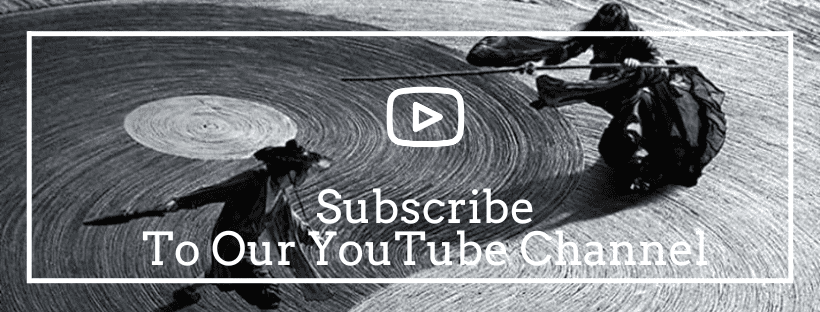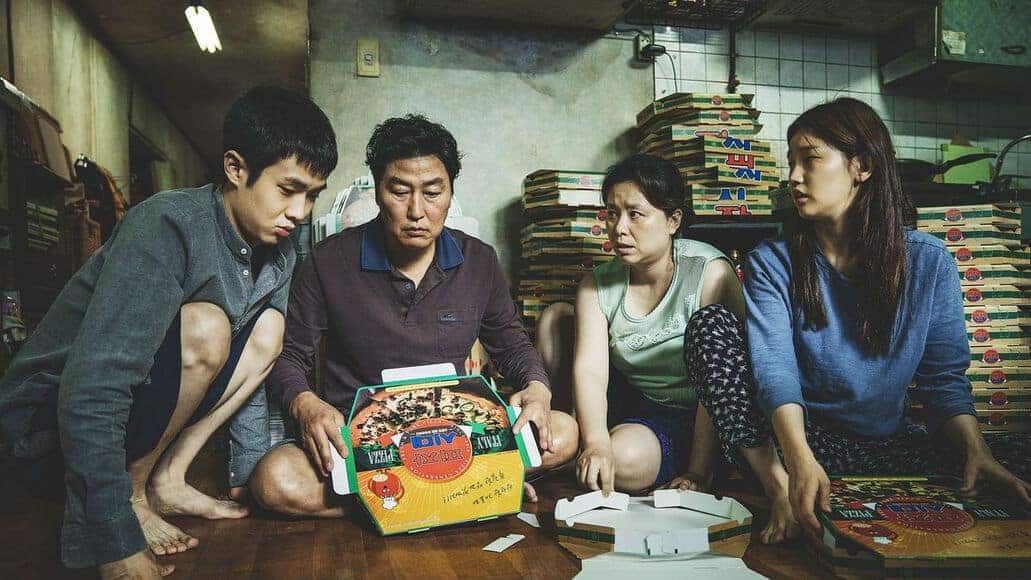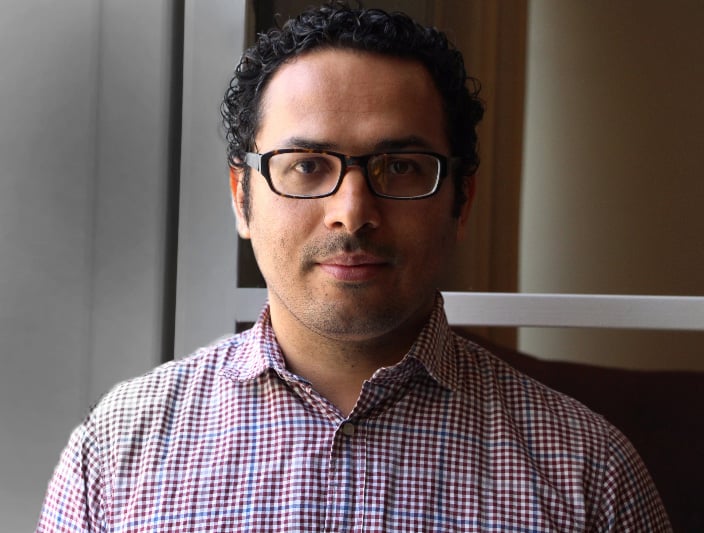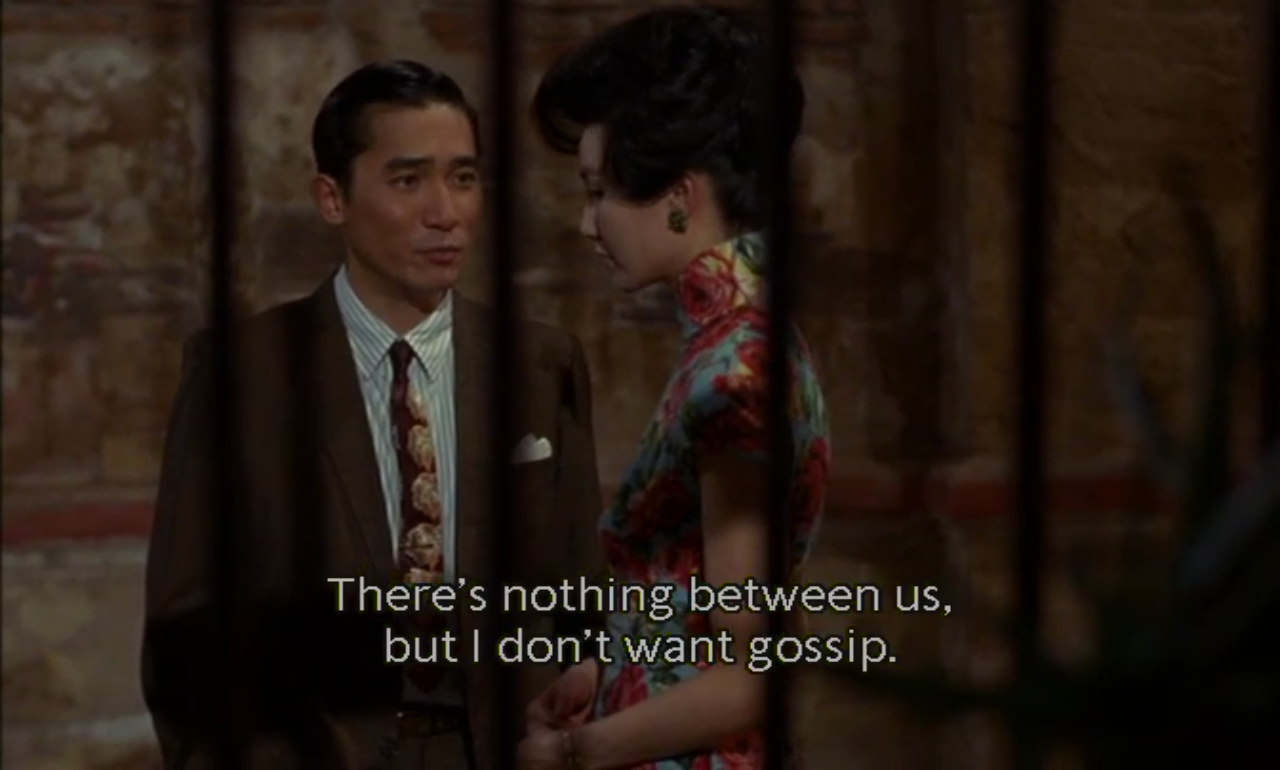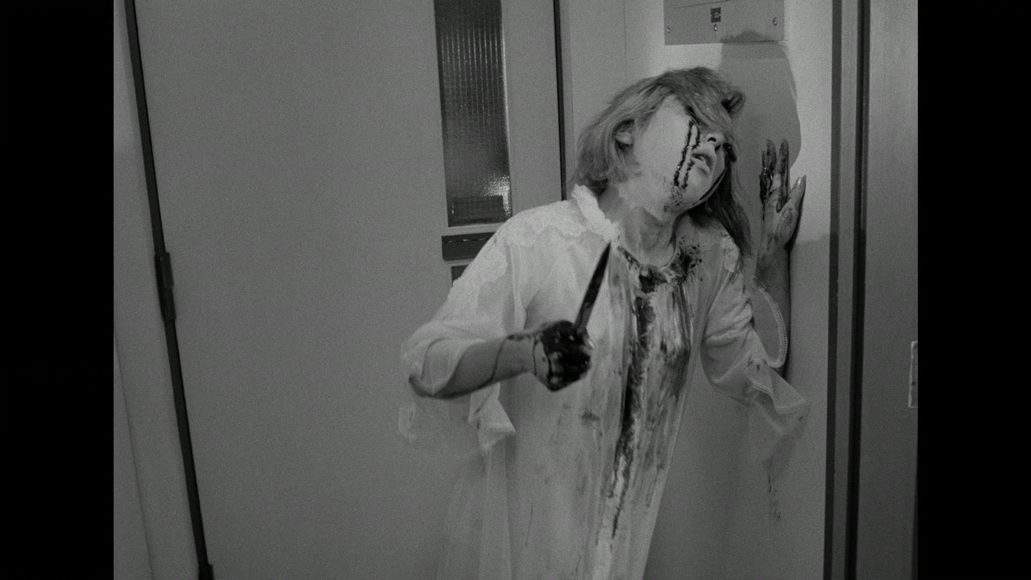Diana Ashimova is a festival programmer, artistic director, member of NETPAC, film producer. With a master's degree in filmmaking, she was responsible for the programming of the Eurasia International Film Festival for nine years and directed several international film festivals in Kazakhstan and abroad. For seven years she worked as an international consultant for Kazakhfilm JSC. Since 2011, she has been the artistic director of Bastau International student and debut film festival. In 2017, she founded the film company A Team. Since 2021, she has been a lecturer at the Turan Film Academy.
On the occasion of her presence as a member of the NETPAC Jury at FICA Vesoul, we speak with her about her work as producer, artistic director and teacher, Kazakh cinema, and many other topics.

Tell me a bit about you and the path that led you to work in cinema.
I am producer and artistic director of the Bastau Film Festival. This is a festival that has run for 11 years to support young filmmakers. We screen debut full length films, debut shorts and short student films. We have different international competition sections and also we have a special section for documentary cinema and debutant filmmakers. And of course, we focus on the educational side of the process because there is the Film Schools Association created at the festival that collaborates with different international film schools and institutions where we exchange programs, mentors, students to develop film education in Kazakhstan.
I started production quite recently, around five years ago, because I was working at the Kazakhfilm National Film Studio, promoting films to film festivals, selling films and it was my goal and purpose to drive myself into production specially to promote young filmmakers, to help people who have just begun their career in the film industry to find money for their projects, to help them promote their films and to find interesting workshops to start learning how to work with international film funds. Because there was no such course or discipline at our film institutes until recently at Turan Film Academy. Quite recently, we started festival promotion and the art of pitching disciplines because there is a new system for applying for a state budget for film production through a pitching system, which is something new for our filmmakers. So through the festival, we also help them get this knowledge and experience.
Which city is the festival in?
Almaty.
What are the difficulties and benefits of having a festival in Almaty?
The difficulty is maybe that we are a bit far from both Asia and Europe and sometimes it is a bit expensive to fly and go abroad. But the benefits for our film industry is that Almaty, as the ex-capital of Kazakhstan, is a very cultural city, so most of the film companies and institutions are there, Kazakh National Film Studio is also there so the industry is more centralized there. In Astana we have the Kazakh National University of Arts and there are some production companies that work there. But since most of the industry is concentrated in Almaty, it is much easier with the shooting, renting the equipment, etc.

Are you screening only Kazakh films or international too?
The festival is totally international. And we are bringing a lot of film programmers and artistic directors from different film festivals. So that's why we have this special section, New Kazakh Cinema Bastau KZ. So we screen the latest arthouse and genre films, all different types also in the Out of Competition section, just to get acquainted with the films that are produced in our country.
And can you tell me a bit how the programming works? How do you choose the films that screen in the festival?
Firstly, the programmers from the Program Department travel to different festivals to watch movies that would be of interest. Also we collaborate with film schools. Every year, when the submission period starts, we send a press release and we get a lot of packages of films from film schools online. So the Program Department usually considers them and chooses the most interesting films for the Selection Committee, which is international. So there are some local filmmakers and film critics and some international advisors, who select the final list of films that will be screened.
How many films do you screen, more or less?
Last year we had 52 films.
What's the reaction of the audience?
We have a very good audience because we focus on young filmmakers. And this festival is the main platform for them to screen their films. For them, it's a real holiday. Like, it's their dream to watch their films on the big screen with the audience. And usually the geography of the films that we bring is very diverse. And, of course, it's interesting to watch what's going on in different countries. And also there is this kind of thing, that the professionals really want to compare how the films are produced abroad and to compare them with our quality of films. So that's why for them, it's interesting to watch and compare. And for the audience, it's interesting to also see what's going on, because we also have this section where we screen the films that are winners of big film festivals. And of course, these films will be not released in our theatres. And that's why the festival is the only way to watch them on the big screen. We try to give this chance to bring Central Asian premiers for such kind of films.
How would you describe the state of the Kazakh film industry at the moment?
Right now, it is developing very fast. Earlier, the main state budget went to Kazakhfilm National Film Studio, but because of the new system that we introduced, now it's the new State Center for National Film Support that “guards” the money from the Ministry of Culture and they announce pitching once a year. And old companies, even including the Kazakhfilm, which is state budgeted company, they all take part in this pitching competition. I think it's great because it gives opportunities to everyone because there are independent film companies and some newcomers who probably are very talented, and this system gives them a chance. We focus more on festivals promotion, so there are Kazakh Film weeks in different countries. Last year, I guess it was around 12 or 15 countries that had this film weeks in Central Asia, CIS countries and abroad.
And it's also a good idea to promote to attract attention and raise the interest in co-productions to show the locations of the country. Kazakhstan has four seasons, it has different types of locations. You can find everything and there is infrastructure and somehow, the fee is not so high, so it's quite cheap to hire professionals. And also we have the system of tax rebate up to 30%. So there are a lot of good incentives that can be quite interesting for international filmmakers. And this year, the Kazakh pavilion at Cannes Marche du Film will be revived. So, a number of good, positive things are happening right now. For example, last year, 62 projects were launched with the support of the government. And the government really supports young filmmakers, and a number of them received financial assistance. I think it is quite a positive thing. To compare that with several years ago, among the theatrical releases in the country, only 20% were Kazakh films. Right now, it is almost close to 50% and the quantity has been transferred to the quality also. Before there were mostly comedies but now there is diversity of genres and the quality is quite high.
How many screening rooms are there in Kazakhstan?
We have around 400 screens. It's quite a low number, because Kazakhstan ranks ninth place on the territory in the world.
What's the population?
Right now, more or less 20 million population in the whole country That's why 400 is a quite small amount. And that's why most of the films are low-budgeted because getting revenue back from the box office is quite difficult.
How does the distribution system works, from the production of the movie until it gets to the cinema?
There are two ways. Producers can work independently with the cinema theaters, so they can try to put their film in cinemas by working with them directly. There are also distribution companies. Right now there are two big distribution companies. They also work with Hollywood Studios, so they somehow share the films from the studios like Universal, Sony or Warner Brothers etc. So they also help, of course, with the Kazakh films. For example, I gave my film to them. And that's why I got quite a nice film schedule every day, an advertising campaign with all the posters and everything. Of course, they got their share, but still, I think it has more benefits than if you want to try and put the film yourself because almost all cinema theaters are private. So they are interested in more commercial movies to get box office results and for example, for art films that aren't mainstream, it's a bit difficult.
And would you say that Kazakh cinema art has gone completely away from Russia, because I feel like with some countries that used to be very close to Russia, are still very affected.
I think we are completely different, even from the very beginning. Right now, I can say that Kazakh films have their own face, even from the beginning, because of the history, because of our mentality, history, the culture, and traditions. Because if you can, like trace films that are in the program of film festivals, they have nothing to do with Russian cinema. So they're completely authentic. So I can say, we have our own way.
I hope I did not offend you
No no, it wasn't offensive. I understand what you mean. During WW2, Mosfilm or Lenfilm, these state film studios were evacuated to Kazakhstan, in the United Almaty Film Studio and such big names as Eisenstein were making films in Kazakhstan. “Ivan the Terrible”, the second part, was shot at Kazakh Film Studios. So that's why it gave a very good platform to develop the skills and education for our filmmakers. So of course, there were co-productions with Russian filmmakers. But now, you know, even if you know the famous Kazakh New Wave, names like Serik Aprymov, Ardak Amirkulov were students of the Russian State Film Institute, the famous workshop of Sergei Solovyov. They got their education there but their films are totally authentic.
Can we talk about some names, some filmmakers that you seem to think that they're worth noting, right now, in Kazakhstan?
I think right now, the most famous and successful names at film festivals are Adilkhan Yerzhanov or Emir Baigazin. Have you seen his last film “Life”?
I have not, no.
It was in Toronto and Tokyo. And also Farkhat Sharipov with films like “Scheme” and “18 Kilohertz”. Of course, there are also Yerlan Nurmukhambetov and Darezhan Omirbayev So yeah, I think it's quite interesting. It's a kind of new phase of Kazakh cinema. And also there are some young debut filmmakers and a lot of female directors are now working hard like Sharipa Urazbayeva.

Yes, she was here like a couple of years ago with her film.
“Mariam”, yes. Our film also “Fire” by Aizhana Kassymbek. So there are a lot of newcomers take part in a lot of film festivals and win prizes.
Regarding the film of Farhat Sharipov and Adilkhan Yerzhanov, for example, I find them really funny, they have this weird sense of humor, self deprecating and deadpan. For me, it's very entertaining. Is that how the people are in Kazakhstan?
Again, it's a bit of a problem because when these films are in released theatrically, unfortunately, they are not so popular. That's why I cannot say what is the reaction. Because, the professionals, the students of film school they come and usually watch this type of movies as examples of successful movise. I know that the last film of Adilkhan, “Goliath”…
Was it “Goliath” after “Ademokha's Education”?
“Ademokha” was not yet released in Kazakhstan. We screened it at our festival, but I think it has not yet released. But “Goliath” was in theatrical release. Those kinds of, I would say art mainstream film, even not like pure art house films like “The Plague at the Karatas Village” or “Night God”, are also not particularly succesful. Because we need somehow to cultivate this taste in cinema, you know, to make the audience more intellectual, in contrast to we right now call ‘popcorn audience' They really love to watch comedies, which are very successful. And I think that is the problem. Darezhan Omirbayev, he always says that we need to have a Film Institute, we need to introduce film studies, maybe at least the history of cinema in schools to start developing this taste from the beginning.
Can you tell me a bit about your teaching?
Yes, I teach at Turan Film Academy. It's my second year. I did my master's degree at this film school. Since this year, we have a new Producers Course. So before it was just directors, cinematographers and actors, but from this year, we have a production course. And so that's why we started this new discipline, the art of pitching, festivals promotion and distribution. Because we don't have special professors in this. We are five or six producers who do this international job. And that's why we really try to teach what we know from our experience. And also I am trying to bring some specialists from abroad like producers, some mentors who work with different talent labs. I'm trying to invite them at least online to give some workshops so that they learn how it works abroad. Because it's a new reality for us with all this pitching system. And that's why we are trying to learn how to do it in a proper professional manner.

How is the level of the students?
I have third course and I have first course. So I can say that in our film school, the cinematography department is very strong, the directors of photography, the cameramen, these guys are really great. In directing, quite recently, Darezhan started teaching and also maybe you know this director, Nariman Turebayev, he was in Karlovy Vary with his film, “Adventure”. He's also a professor at the film school. And this first course, I can say that they are very curious. And what I really like in them is that they watch a lot of films, good or bad films, you know, but at least they watch and they are trying to understand the good and the bad. Their desire to watch a lot of films can somehow help them to learn what is good or bad and develop this taste. And this is good.
And also they read a lot. For example, last January, I shot a short film. And I had a quite famous cinematographer, Aziz Zhambakiyev, who won Silver Bear for “Harmony Lessons”, with his students. I think it was like, second course or something like that. And they were putting cameras and trying to put the lights as we needed in our film. And when we gathered these guys, and said, “what do you see?”, one of the guys said, “I see that it's kind of a picture like Rembrandt.” They are thinking, they know art, they learn art and that's why I was totally, you know, pleasantly surprised on their educational side, on their intelligence side. Because he said Rembrandt; it's a piece of art, the lights and everything. And I think that is very important. It is very nice that they have this curiosity to read and to learn and to think.
Last question, I guess what does the future holds for you? Are you going to continue producing, pitching and being festival director and doing everything?
I want to combine, of course. I don't want to leave my students. I want to combine. But I only have classes twice a week so I can still have time for the production. I'm very obviously picky right now in choosing the projects because it's very important for me to tell the stories that are really, you know, touching me that I really want to talk with the audience about, to send some kind of message and that's why I choose very, very precisely with whom I work or what are the stories etc.. And I'm running Bastau, I hope that the festival will grow. And there is a new challenge for me that since this year, I'm doing a new film festival in Paris, the International Film Festival. We plan to make it with the support of UNESCO. So it will be a kind of new film event that will take place annually. I will also write to you about this, maybe you can come and participate in it. Right now, I live in Paris and I'm doing my classes online.
How do you manage to do all these things?!
I'm trying right now. The short film that we made with Aziz Zhambakiyev is in post production and the new one is just in development, and we are submitting to different co-production markets and film funds and right now I'm focused on this new film festival. And that is a great challenge for me to try and do something. Actually, I made one Festival in New York, in 2011, the Dialogue of Cultures Film Festival, which was quite small, but rather successful. We had good media feedback and the selection of films was very interesting. So it's not my first experience to make something abroad, but we plan to make this festival like annually and focus more on the professionals, on bringing good cinema, making a talent lab or something like that.



